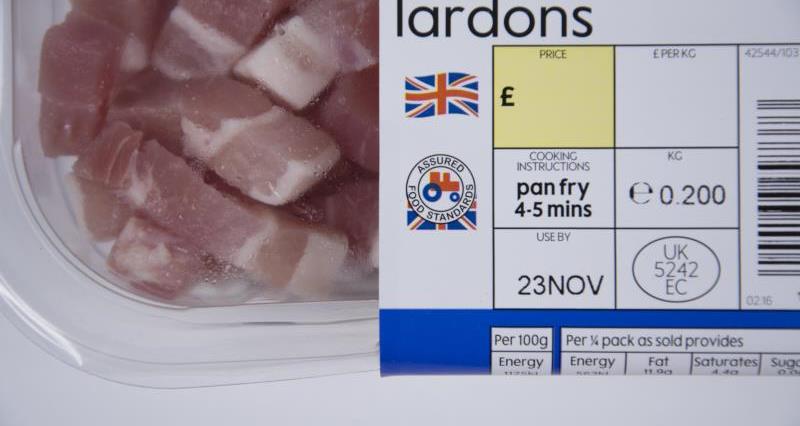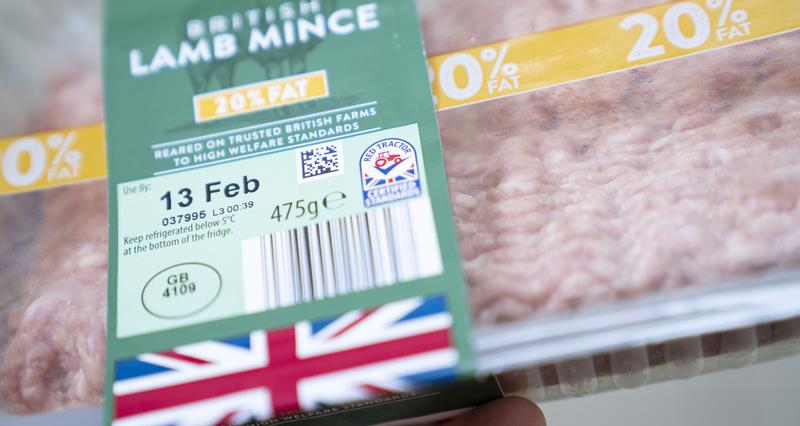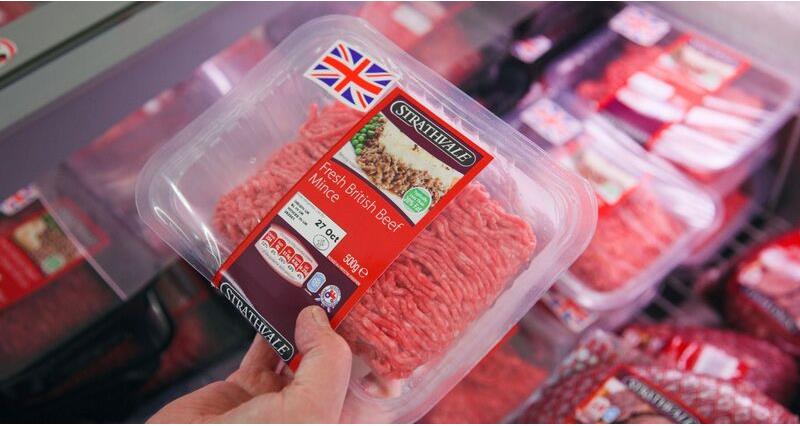The key principles of food labelling law aim to provide consumers with accurate, clear and easy-to-understand information to allow them to make an informed purchasing decision, and to provide information to enable consumers to store and prepare the food safely.
Not only do labelling regulations govern what is displayed on a label, but they also protect consumers from being misled as to the nature of the food, including its origin. These protections relate to the information, imagery on the label and even the overall presentation and advertising of a product.
Is it British?
Under the FIC (Food Information to Consumers regulations), there is a mandatory requirement to label the origin of meat from pigs, sheep, goats and poultry. This means that unprocessed product, sold in packaging, in-store or to caterers, must be labelled with details of where the animal was reared and slaughtered.
The term ‘origin’ should only be used if the animal was born, reared and slaughtered in the same country. For other sectors, there are specific marketing standards which lay out the requirements to label the origin of the product. These sectors include fruit, vegetables, eggs and beef.
Loopholes
The definition of ‘origin’ within the FIC regulations was until fairly recently the last place of substantial change. This meant that there used to be a loophole under which a processed product could be labelled ‘British’ if its main ingredient was imported and processed in the UK. New origin rules came into force in 2020 that closed this loophole.
Now, where the country of origin indicated on a label is different to the origin of its primary ingredient, the country of origin of the primary ingredient must also be labelled. For example, the labelling for a ‘British Shepherd’s Pie’ made with lamb mince from New Zealand must also provide the country of origin for the lamb mince on the pack in the same field of vision.
Misleading, mislabelled products
Splashed over Twitter, we have seen examples of mislabelled products including ‘British carrots’ from Spain and ‘British mushrooms’ from Poland. Many of these cases are caused by labelling errors at the processing or packaging stage, rather than by the retailer purposely trying to mislead the consumer.
That’s not to say that the retailer doesn’t have a responsibility to ensure the correct quality control measures and checks are in place to prevent these errors reaching the shelf. This is where farmers can continue to spot these labelling errors and hold the supply chain to account.
A grey area
There are product labels that sit in a grey area where it’s a matter of opinion on whether it is misleading or not. There are regulations protecting consumers from falsely described or presented foods, and it is primarily down to Trading Standards to enforce the law. What can you do there? Report it to Trading Standards and highlight to the retailer – they are more likely to listen to consumers. Finally, send examples to the NFU. We can raise issues with our retail contacts and use poor labelling examples in our lobbying work.
Future labelling policy
There is still scope to strengthen labelling regulations, for example in relation to country of origin labelling on processed meat and dairy products, labelling online and protections for meat and dairy terms. The NFU Food Business Unit continues to monitor labelling and is looking for opportunities to drive the appetite to change the rules.
Defra is currently focussed on the following areas:
Animal welfare
The government believes there is a public appetite for improved animal welfare labelling, however it has recently shelved plans to consult on a mandatory welfare labelling framework as it doesn't consider this the right time to reform labelling for animal welfare. Defra will continue to explore how to improve food information and raise animal welfare standards.
Sustainability
The government plans to develop a mandatory methodology that must be used for those wanting to use eco labels or make sustainability claims.
Country-of-origin labelling
The government is exploring whether country-of-origin rules can be strengthened by mandating how and where data is displayed.
Health
The government is considering whether the current regime could be strengthened to support consumers in making healthier choices.
We are working hard to ensure that the NFU’s views on labelling policy are well represented. In the background, we are preparing evidence to ensure that any future plans for labelling from Defra are fit for purpose.
It is important that any labelling legislation is meaningful to consumers and enables them to make informed choices about the food they eat. We must not lose sight of the complexities of farming systems and simplifying information about welfare and the environment may actually leave consumers more confused.
More from NFUonline:



